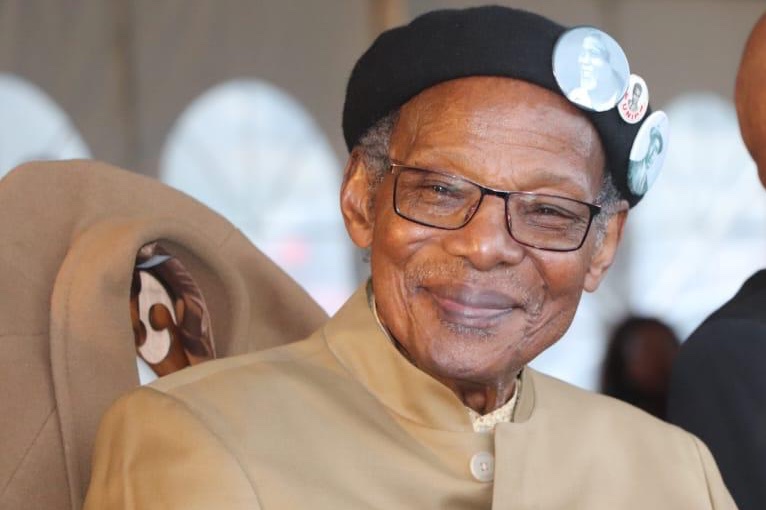Johnathan Paoli
While the majority send their condolences and well wishes to the family and friends of Mangosuthu Buthelezi, a prominent political leader and a traditional prince of the Zulu Nation who passed away, it remains germane to consider the man’s life in its entirety.
Prince Mangosuthu Gatsha Buthelezi was a South African politician and Zulu prince born on 27 August 1928, who was a Member of Parliament and the traditional prime minister to the Zulu Royal Family.
Buthelezi founded the Inkatha Freedom Party (IFP) and served as its president for 44 years, in addition to serving as the prime minister of the KwaZulu homeland and the Minister of Home Affairs in the post-apartheid government.
He was known for his opposition to apartheid, but also for his resistance to the ANC and its armed struggle.
Buthelezi was accused of being involved in several violent conflicts with the ANC and its allies, especially in the 1980s and 1990s.
He was also accused of being a collaborator with the apartheid regime, a warlord, and a mass murderer. A charge he firmly rejected.
Buthelezi supported the apartheid policy of separate development and refused to accept the independence of KwaZulu, which would have made him a puppet leader of a Bantustan.
He formed the IFP as a Zulu nationalist movement that promoted ethnic identity over national unity and was seen as a divisive figure who exploited Zulu traditions and symbols to mobilize his followers for narrow political gain.
The IFP leader opposed the armed struggle of the ANC and its allies, and advocated for a peaceful negotiation with the apartheid government, subsequently accused of being a traitor and sell-out by many among the liberation movements.
He aligned himself with the conservative white parties, such as the National Party and the Conservative Party, and reportedly received financial and military support from them and had links with the South African Defence Force and the apartheid security forces.
The party and its leader’s response has been a claim that he supported the apartheid policy of separate development only as a temporary measure, and that he used his position as the leader of KwaZulu to undermine the homelands system from within.
Claiming to be a follower of Mahatma Gandhi and Martin Luther King Jr, and inspired by Albert Luthuli and Oliver Tambo, who urged him not to refuse leading KwaZulu, the party maintained its position of non-violence and peaceful negotiations.
In the early 1990s, he unleashed a campaign of violence and terror against what he alleged were the ANC and its allies, especially in KwaZulu-Natal and Gauteng. In the process, IFP members in collaboration with the apartheid security forces, unleashed wanton violence and brutality on many innocent township dwellers, many of whom were apolitical and innocent casualties.
For some in the ANC, he was blamed for instigating massacres, assassinations, and political killings that claimed thousands of lives and was also accused of creating a paramilitary wing called the Inkatha Impi, which was trained and armed by the apartheid forces.
He refused to participate in the negotiations for a democratic transition in South Africa, and boycotted the first democratic elections in 1994.
Buthelezi threatened to launch a civil war if his demands were not met and only agreed to join the Government of National Unity after he was granted concessions by Nelson Mandela.
In the post-1994 era, the IFP has further maintained its nationalist niche, playing the role, along with the Boer-nationalist FF+ and certain faith-based and ‘one-man’ parties, of affirming support for conservative and reactionary legislation and ward governance.
But some praise Buthelezi for playing a constructive role in the political arena in the last decade.
Johnathan Paoli- a political writer.

